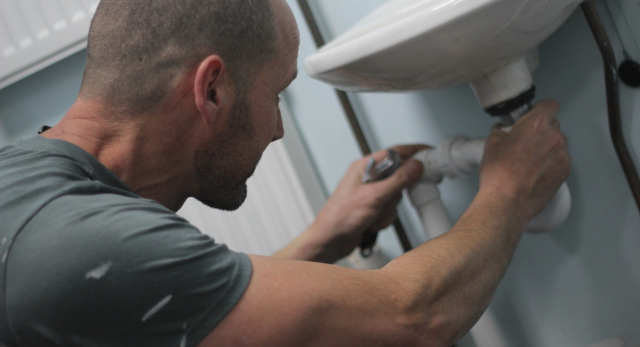In one of her last acts as Prime Minister, Theresa May enshrined in law the commitment to achieve net zero carbon emissions by 2050.
This legally binding target sets the UK on a firm path towards the phasing out of fossil fuels, including natural gas.
However, this does not mean that the work carried out by gas installers will die out.
On the contrary, the skills and knowledge of gas installers are still very much in demand, now and in the future.
Without a sufficiently skilled workforce to put plans into practice, our commitment to decarbonising heat will never be achieved.
Gas Grid of the future: the facts
- 85% of UK homes are heated by natural gas
- 46% of UK energy use is attributable to heating residential dwellings
- The proposed “ban” on gas central heating from 2025 applies to new builds only
- Electrification is not seen as a silver bullet solution.
- Blanket retrofitting of heat pumps to existing homes connected to the gas grid is not practical or cost-effective; it is therefore not being considered as a solution.
- The current generation of gas boilers in existing homes have many decades of use left in them and will need servicing and maintaining for years to come.
What low-carbon natural gas alternatives are on the table?
- Low-carbon heat-pump networks for densely populated areas. Of the approx. 23 million homes connected to the gas grid, the CCC report aims that 1.5 million will be moved onto low-carbon district heating by 2030.
- Hybrid heat pumps systems, which switch between a traditional boiler and a heat pump to ensure the most efficient energy source is used. This could see up to 85% of a consumer’s heat demand being met by low-carbon electricity, with the remainder being provided by natural gas, biogas or low-carbon hydrogen.
This systems was tested in the Freedom Project by Wales and West Utilities and Western Power Distribution, which installed hybrid systems in 75 home in Bridgend, Wales.
- Hydrogen for heat. In it’s 2018 report, Hydrogen in a Low-Carbon Economy, the CCC explored a range of scenarios for decarbonising buildings connected to the gas grid, using different combinations of electrification and hydrogen. It concluded that hydrogen in combination with heat pumps could play a valuable role in decarbonising heat in the UK.
There is lots of research currently going on in this area. Worcester Bosch has been working with the CCC to develop the world’s first hydrogen boiler prototype. Additionally, over the next couple of months, Keele University will start a pilot called HyDeploy. For one year they will blend up to 20% of hydrogen with the normal gas supply, without any changes needed to gas appliances or pipework.
- Biomethane could be injected into the gas grid without any changes from the consumer. However, its potential is limited to around 5% of gas consumption.
Is gas installation still a good career option?
Yes! As Mike Foster, CEO of the Energy and Utilities Alliance commented recently: “The gas boiler is not the enemy in the fight against climate change but an ally”.
There are still 23 million homes on the gas grid, the boilers and infrastructure of which will require maintenance and servicing for many decades, and beyond.
As the alternative heating methods discussed above start to be gain momentum, a new generation of heating engineers will be needed to facilitate the new systems, most of which require pipework and infrastructure not much different to the current gas grid.
Take a look at our New Entrants Gas Safety Packages for more information on getting trained up.
We’ve also produced a couple of free guides relevant to anyone with ambitions to become a gas installer.
Download them below:
The Ultimate Guide to Careers in Gas
The Ultimate Guide to Careers in the Commercial Gas Sector
The Ultimate Guide to Future-Proof Installers









